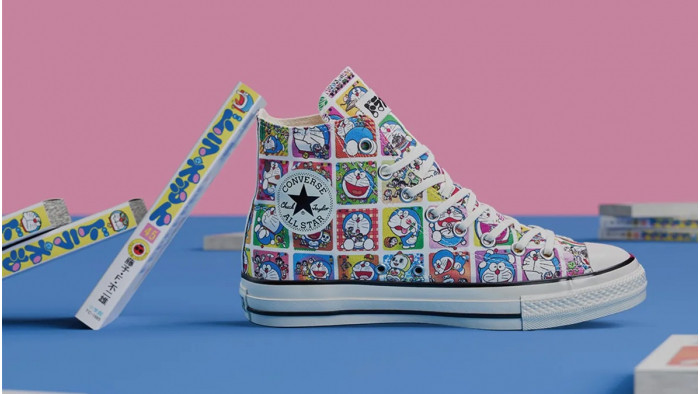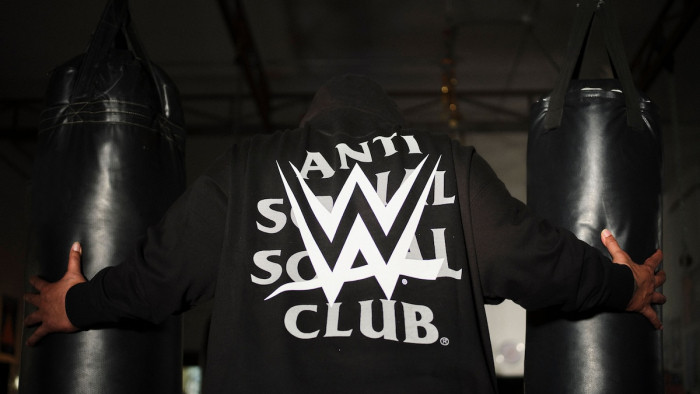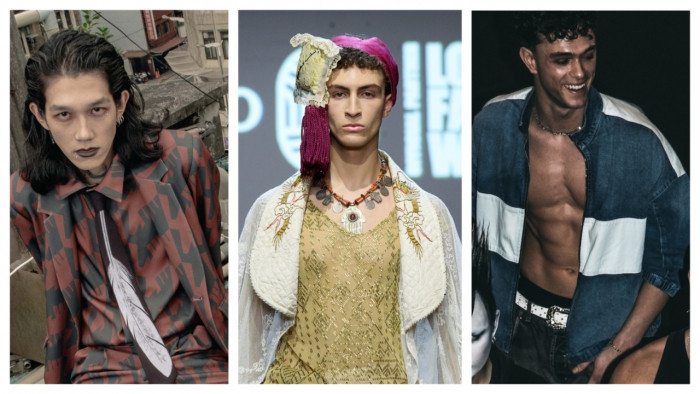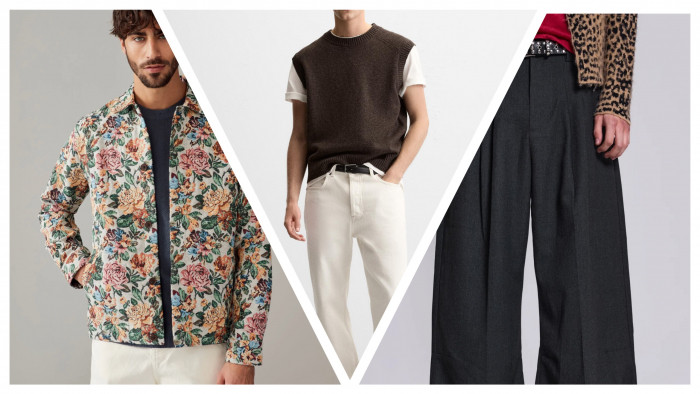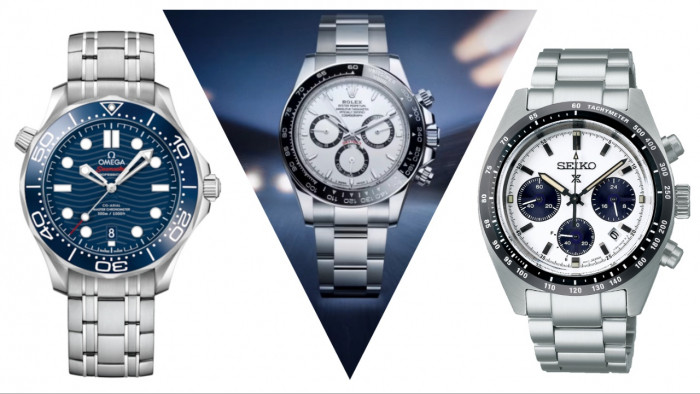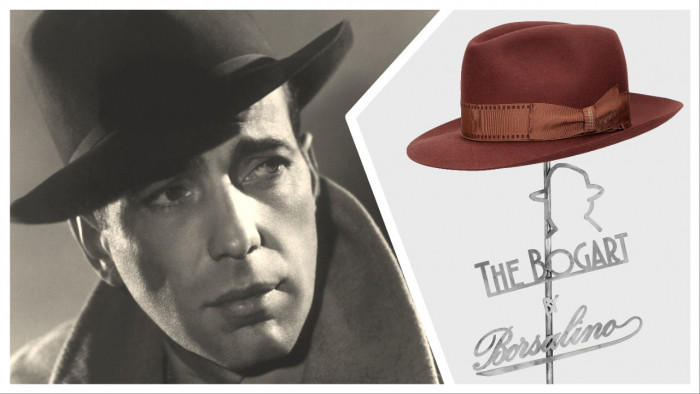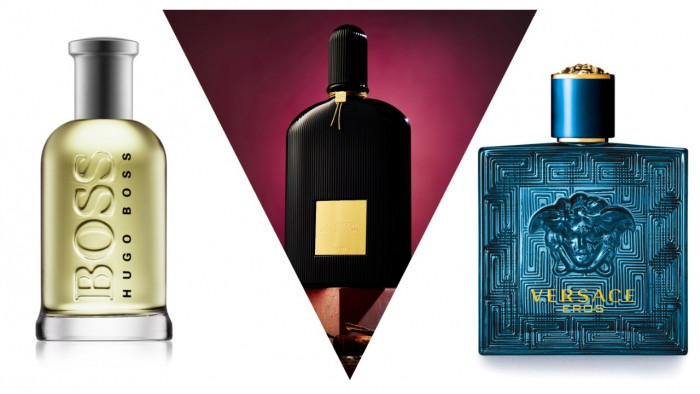In Milan, between puffs on a now-electronic cigarette,Donatella Versace grants MODE a rare and exclusive audience
Donatella Versace is in a very good mood. It’s a few days before her autumn/winter 2014 menswear show, and the Italian designer is sat in her palatial Versace apartment on Via Gesú, Milan, dressed in PVC jeans and a black vest with PVC trim. On her feet are towering high heels and in her hand an electronic cigarette – yes, Donatella Versace has given up smoking – and she is beaming. “We’re the most Googled brand in the world,” she tells us, referring to the search engine’s new data on fashion brands in 2013. “I expected that, obviously. What my brother and I did – yes, why not?”

She’s right. The power of her brand extends beyond fashion into pop culture. Some of those searches were for the Drake track Versace, which Donatella played at the end of her spring/summer 2014 women’s show. And the Canadian rapper is not the only one: Lady Gaga named Donatella, a track from last year’s Artpop, after her close friend and the fashion mogul returned the compliment by featuring Gaga in her most recent ad campaign. With Donatella, you’re not dealing with just a designer, but a figure of huge cultural relevance.
The apartment we are sitting in has remained untouched since the murder of her brother, Gianni, in Miami in 1997. But upstairs is Versace’s future, the drumming of models’ feet coming through the ceiling from the studio above where the autumn/winter 2014 show is being prepared, the noise exaggerated by Donatella’s choice to have all her models wear Cuban heels.
It’s a classic Donatella touch: both provocative and playful. This, after all, is the woman who sent models down the runway in chaps earlier this year. The result was an immediate Instagram hit and exposure for the new styles of Versace’s big-selling underwear range. This is the secret of Versace’s recent resurgence: be daring, be totally ‘Versace’, make the clothes contemporary, and then watch them fly out of stores.

Sibling superstars
Donatella Versace was born in 1955, eight years after her brother Gianni. “I was like his doll,” she says. “He dressed me. He was the one who said my hair should go lighter.” The two formed a tight bond, and Donatella soon joined her brother to work with him at his fast-growing label.
Versace in the Eighties and Nineties was a sensation as Donatella went beyond her work as Gianni’s muse, sounding board and critic. One of her many key roles was to look after the iconic advertising images and campaigns shot by Bruce Weber or Richard Avedon. It was Gianni who, in some ways, invented the supermodel: Linda, Naomi, Cindy and Christy always looked like they were having the most fun in Versace.
While it was Versace’s womenswear that grabbed most of the attention, the foundations laid in menswear were just as strong, worn by male supermodels such as Marcus Schenkenberg, and celebrities including Jon Bon Jovi, Sylvester Stallone and Prince. The brand’s signature garment became the Versace silk shirt, but for the new Versace customer, Donatella wants to show the full breadth of the brand’s style.
For her spring/summer 2014 menswear show, she took decisive action, opening with new versions of iconic pieces. “In a way, people consider the printed shirt as the only iconic Versace piece for men,” she says. “It’s not. There is also sartorial. There is leather. There is denim. I showed these things that are the icons of Versace, and that you will always be able to find in our stores. It’s about putting back the codes, transformed for today’s world. The leather blouson. The black suit. The denim with the baroque black, white and yellow print.”
From the iconic range, it is the tailoring that she is particularly keen to highlight. “The sartorial part of Versace has always been there,” she says. “The suits are cut like a V, with a strong shoulder and slim waist. It’s a suit that’s cut in a certain way. It doesn’t have to be decorated or have a Medusa on it to feel like Versace when you put it on. It’s about hidden power.”
Crucially, menswear has moved on from the obsession with skinny men. It’s something that Donatella finds reflected in men today themselves. “Versace has always been about the athleticism of a man, and masculinity,” she says. “Today, men try to look better. They eat healthier food. They go to the gym. They don’t let themselves go.”
It’s a connection with reality that extends into all of her work. “Everything starts from the street,” she says. “You can’t stay locked in your studio. You have to look around. The world has changed. Men have changed. And they are paying much more attention to their wardrobe.”

Donatella is particularly pleased with how sexuality is less stigmatised now. “Gay men don’t feel like they need to hide themselves any more. And straight men are copying the style of gay men,” she says. “Women go to gay bars, straight men go to gay bars. And it has an effect on fashion. Fashion can be about what is going on in the rest of the world. Like politics, religion, literature, fashion is part of the culture.”
She is particularly pleased that gay rights have become a global conversation in the wake of Sochi, and Putin’s anti-’gay propaganda’ legislation. “It makes me happy that the topic is being discussed everywhere,” she says. “Even the Pope has discussed it. The Pope is a revolutionary. He’s more of a revolutionary than me.”
Does Dontatella think the Pope should wear Versace?
“Yes, I think he can wear Versace. He can wear a Medusa.”
She is a woman who is, by her own admission, impatient. “I’m someone who really looks to the future,” she says. “Because in fashion, the future is our present.” Right now, she is obsessed with the internet, and the changes it has brought to fashion itself. While some designers try to pretend fashion can still exist in its old cycles, Donatella knows the internet is changing everything.
“The internet is today. It’s not six months from now,” she says. “Images of our fashion shows are online even before I’ve had a chance to look at them. There are people around the world who want those clothes, and they want them as soon as they see them. Why should they have to wait all that time to find it in the stores?”
She admits that catwalk-to-store immediacy is difficult for the luxury of her mainline collections, but since last year, the younger Versus Versace label has become entirely seasonless. Versus Versace had originally been Gianni’s gift to Donatella, her own label where she could marry the spirit of Versace with the rock bands that she loved.
In May last year, she returned to those roots, revolutionising Versus Versace by revealing the new collection at an event featuring Grimes and Angel Haze. It was streamed live online, and straight afterwards, the clothes were available to buy. “It gives me so much energy to see all these kids asking for a Versus Versace T-shirt, like the one they saw in the performance,” she says.

Back to the future
Her impatience gives her a natural curiosity about the world. She is interested in the way that men dress has changed. We ask her how men wear tailoring today.
“Probably with jeans,” she says. “But the more men wear them with jeans, the suit has to be better quality. You’re not going to wear a cheap suit jacket with jeans. If you wear jeans, you’ve got to have the most beautifully tailored jacket.”
It sets her off on a train of thought. “I like the way men mix clothes together for themselves,” she says. “You think you’d never like what men put together, but somehow it works. It’s more interesting, for me as a fashion designer, how they buy the collection than women.
“Men buy the leather blouson, buy the jeans, buy the sweater and then wear it their own way. Yes, women put it together with styling and jewellery, but women tend to put things together because they’re related. Men are more spontaneous, and they don’t realise they’re doing it. For me, it’s very inspiring.”

Right now though, Donatella has a major preoccupation. Although Versace’s figures are up, there is still much work to be done. “It’s just the beginning,” she says. “There are so many great possibilities.”
Versace may be the most Googled brand, but in this fashion conglomerate era, the family-run Versace remains relatively small. “We still need to be in so many countries where we are so well known, yet we don’t have stores,” she says. “Between the awareness of the brand, and the size of the brand, there is no comparison.” And with that she stands and, in her high heels, walks out the door.
At the time of going to press, it was announced that private equity group Blackstone has taken a 20 per cent stake in Versace, with a cash injection of €150m


